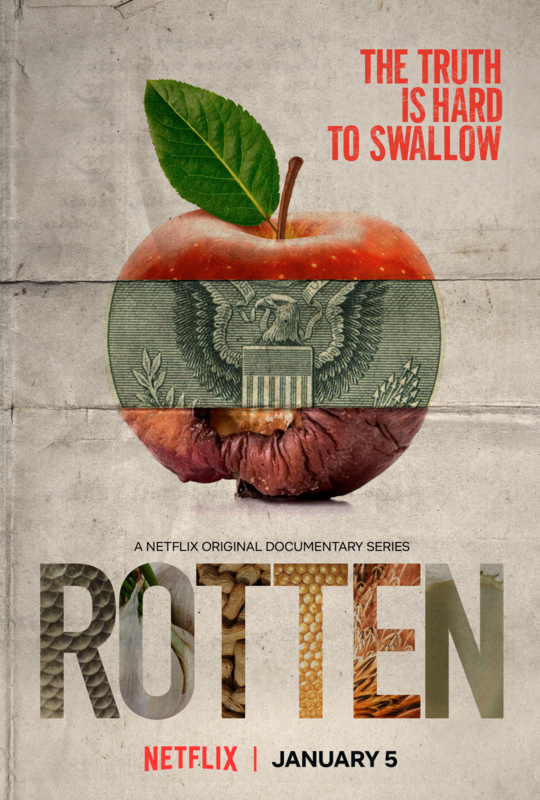Corruption, deceit, greed — it’s not reserved for Wall Street; welcome to the food industry. Netflix’s Rotten, a six-part documentary series, explores aspects of the food industry, including the story behind honey, peanuts, garlic, chicken, milk, and cod. Throughout each episode, the crew brings light to various schemes and crimes in particular areas of the production of these products.
We see the frustration of bee workers, fighting with regulatory standards placed with the aim of creating a “pure” product; we watch as a teen fights for her life because there were peanuts in a meal she was promised was nut free; we root for the small garlic farmer, who just wants to see people like himself have a fighting chance to make it in the market; and we grieve over the loss of so many chickens, who burn because of a company’s greed.
I found the documentary well-executed, and it hooked my attention by opening each of its segments in the style of a true-crime detective anthology. It exposed many horrible sides of the food world, and gives viewers insight into behind-the-scenes scandals.
There is a lot of beneficial information in this documentary. It shows that there is more to the food world than we usually see, and it is eye-opening to know just how entangled commerce and corporations are with what we eat. It really causes the viewer to take pause, and to comprehend just how important it is to think critically about where the food lining your cupboards comes from.
Increasingly, society is shifting its focus toward what we consume, how it’s cared for, and where it comes from. I always love shopping in the “local” section of my grocery store. I try to buy my produce from the plethora of farms we have in the area too. I long to see the “little guy” have a fighting chance, especially among the push for local and sustainable.
However, just because sourcing local food is in vogue doesn’t mean it’s always the most financially savvy option. Rotten emphasizes that. In order to halt the corruption rampant in the food industry, turning to local organic sources may be the better option, since big companies are trying to circumvent and bend the law to meet demand by being dishonest about where their food comes from and what’s actually in it.
So, if you’d enjoy a little documentary to take your mind off the homework piling up on your desk, I would highly advise watching Rotten. I would suggest doing it on an empty stomach, because after watching some of it, you won’t particularly want to eat. Binge-watch at your own risk; Rotten may kickstart the best diet you ever participate in.


